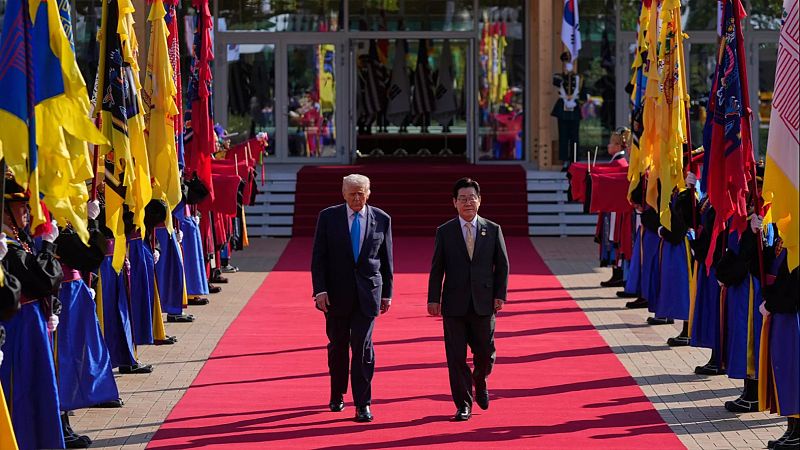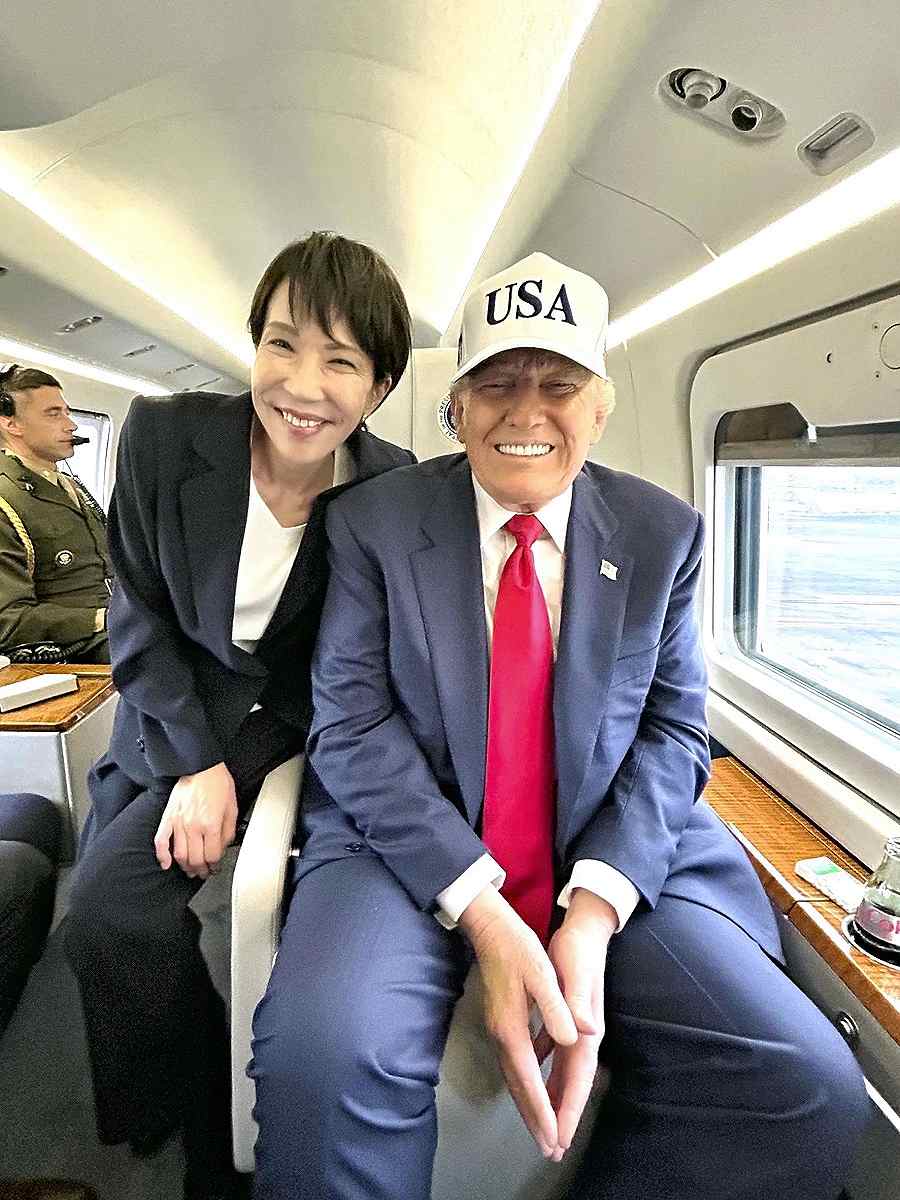The Smile That Fooled Trump — How South Korea’s President Lee Jae-yong Outplayed Him With Symbolism and Strategy
When Donald Trump arrived in Seoul for the final leg of his Asia tour, the red carpet rolled out in full spectacle — military bands, golden banners, and the dazzling smile of South Korea’s President
To onlookers, it seemed like a standard show of diplomatic hospitality. But beneath the ceremony and smiles, insiders now say Lee’s gestures were part of a meticulously crafted psychological strategy
Observers now call it “The Three-Step Trap.”
1️⃣ The Golden Crown — Flattery Disguised as Tradition

During the welcoming ceremony at the Blue House courtyard, Lee presented Trump with an ornate golden crown modeled after the ancient Silla dynasty regalia — a gift steeped in symbolism.
At first, Trump appeared stunned. The crown’s intricate design gleamed in the morning sun, adorned with jade and gold threads. Lee described it as “a token of honor to a great friend of Korea.”
The gesture struck precisely the right chord. The symbolism of kingship, reverence, and power played directly to Trump’s sense of personal grandeur. Cameras caught him smiling widely, joking, “I should wear this to my next campaign rally.”
“It wasn’t just a gift,” one Seoul diplomat remarked. “It was a mirror — and Trump loved what he saw in it.”
The mood of the negotiations shifted immediately. Where earlier Trump had vowed to press hard on trade tariffs, he appeared far more relaxed — even praising South Korea’s “respectful and beautiful traditions.”
2️⃣ The Grand Order of Mugunghwa — A Medal With Meaning

Later that day, in a televised ceremony, President Lee announced that Trump would receive South Korea’s highest civilian honor
The medal itself — crafted with 190 grams of gold, 110 grams of silver, and inlaid with rubies and amethysts — shimmered as Lee personally placed it around Trump’s neck. The symbolism was impossible to miss: nobility, loyalty, and unity.
Trump beamed. “This is incredible — truly incredible,” he said, holding the medal to the cameras.
But to seasoned analysts, the move was no mere courtesy. The award, they argue, was designed to
“Lee’s team studied Trump’s psychology down to the smallest detail,” noted Professor Kim Min-ho of Yonsei University. “They knew flattery was more effective than argument.”
Shortly after the ceremony, sources reported that Trump’s delegation quietly agreed to “re-evaluate” certain U.S. military cost demands — a subtle but significant concession.
3️⃣ The Final Trap — Negotiation by Admiration
The last move came during the joint press conference. Lee praised Trump repeatedly as a “visionary leader” and “a man of strength admired worldwide.” The compliments came so thick and sincere that even Trump appeared momentarily humbled.
But while the praise filled the room, South Korean negotiators inserted final revisions into the closing statement — ensuring that Seoul’s semiconductor exports would remain exempt from certain U.S. tariffs until 2030.
Trump, distracted by the warmth of the event and basking in applause, signed without objection.
“It was the perfect soft-power maneuver,” said diplomatic commentator Rachel Han. “Lee made Trump feel worshiped — and in that comfort, South Korea secured everything it wanted.”
The Smile That Said Everything

When the cameras captured Lee’s final smile as he escorted Trump down the steps of the Blue House, few realized its true meaning. It wasn’t simply gratitude — it was quiet triumph.
Trump left South Korea declaring the visit “a historic success”, unaware that his counterpart had turned his love of flattery into a diplomatic masterstroke.
Within hours, South Korean media headlines captured the mood:
“A Crown, a Medal, and a Masterclass in Diplomacy.”
Behind the Symbolism
Political analysts now regard Lee’s approach as an example of “strategic courtesy” — a form of psychological diplomacy that uses honor, symbolism, and praise to influence negotiations without direct confrontation.
“Trump interprets respect as loyalty,” said U.S. analyst David Hartwell. “Lee gave him both — and in doing so, gained room to maneuver.”
In the end, both leaders got what they wanted: Trump received adulation, and South Korea walked away with policy wins that strengthened its economy and global image.
But the real victory belonged to the man whose smile concealed strategy.





